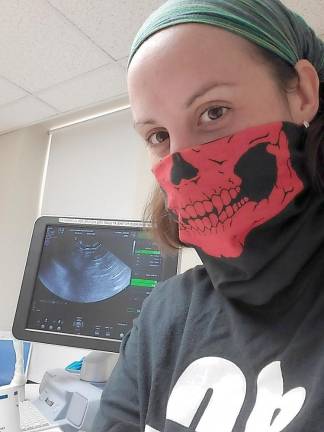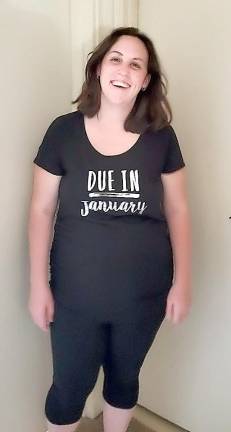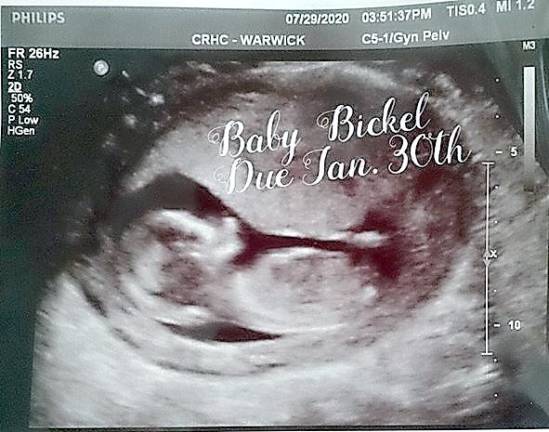Baby boom or bust? Either way, pregnancy looks different during the coronavirus
COVID-19. An expectant mother’s advice to others: ‘Listen to your doctors, constantly wash your hands and wear your mask.’



A good number of people started to joke over a possible baby boom on social media after the first few months of quarantine.
“Are we all agreed that babies born nine months after COVID-19 are going to be called coronials?” joked one user on Twitter. “And in 2033/2034 they’ll all become quaranteens?”
Sure, with so many couples now spending more time together due to a global-wide pandemic, it’s understandable for doctors, or social media users, to draw upon the good ole’ Baby Boom conclusion. An entire generation was born more than 70 years ago after soldiers returning from World War II got, well, busy.
The truth is there is little data to support the claim that disasters like power blackouts, unprecedented weather, terrorist attacks or even global pandemics can actually cause people to stay home and get busy enough to cause a surmountable jump in birth months later on.
A pandemic baby boom? Unlikely.
A baby bust? Maybe.
Baby boom, bust or ... blip?
“I wouldn’t be surprised either way,” said Dr. Toni Centanni, chair of Obstetrics and Gynecology at Atlantic Health System’s Newton Medical Hospital. “It’s really a mix. It might be a little bump up, but I also don’t see a noticeable decrease either.”
Prenatal care in general is starting to look different and not because of a sudden surplus or decrease of pregnant patients.
“If you were to tell me I would suddenly be doing virtual visits with pregnant patients a year ago,” Centanni said, “I would never have believed you.”
In fact, Newton Medical Hospital where Centanni works is one of the only hospitals in northern New Jersey to start using Baby Scripts, a cell phone application for expectant mothers.
“It’s a program that works in conjunction to a patient’s prenatal care,” Centanni said. “It sends expectant mother’s information regarding their pregnancy every week, answers their questions, and helps align with virtual visits.
“Expectant parents are always concerned, even without a pandemic to worry about,” the doctor added. “They’re taking precautions due to the pandemic, but I don’t see it that much as a negative.”
Health perspective, financial perspective
If anything, the impact from the COVID-19 pandemic could also cause a decrease in pregnancy rates. High unemployment rates, low wages and a weakened economy caused by a worldwide pandemic is not the ideal environment to bring life into. Studies have shown that when unemployment is high and wages are low, the number of babies born decreases.
“There’s a health perspective and a financial perspective,” said Dr. Jalpa Shah, Obstetrics and Gynecology specialist from Crystal Run Healthcare based in West Nyack, N.Y. “I think that people are actually less likely to have a pregnancy because of their fear of the unknown.”
Unknowns such as how the world will look in nine months, the actual effect that COVID-19 might have on pregnant women, or even not having loved ones around due to social distancing mandates should all be considered before planning to have a pregnancy during this new normal.
“With a possible second wave coming and loved ones not being able to accompany at appointments for labor and delivery,” Shah said, “they would have to be ready for this.”
Pregnancy in the time of COVID-19
Crystal VanDuzer, a Warwick, N.Y., native, is due in January. She has had her fair share of virtual check-ups and one-person-at-a-time ultra-sounds.
“This is my second child, but it’s my boyfriend’s first,” VanDuzer said, “so it’s upsetting that he can’t experience that kind of joy with me for the first time.”
As a directive support professional at Crystal Run Village in Slate Hill, N.Y., she understands the importance of taking health precautions during these trying times.
“I work in the medical field, we shut down our senior living day program almost immediately back in March,” she added. “I know how serious this is.”
The pandemic hasn’t stopped her from maintaining an otherwise normal pregnancy, though. “I go out, go to the store, wear my mask and wash my hands. Warwick residents have been great with wearing masks around town.”
Her advice to other expecting mothers: “Listen to your doctors, constantly wash your hands and wear your mask.”
‘It would be nice to meet the doctor whose going to take care of my baby’
Dana Marie Becker, Butler, N.J., native, is expecting her first child in January. Diagnosed with endometriosis, a painful disorder when the lining of the uterus grows outside of the uterus, she has taken precaution after precaution to ensure a safe pregnancy. COVID-19 has only furthered those precautions.
“I have an OBGYN specialist for my endometriosis, and for those I’m allowed to have a visitor come with me, but no video calls,” Becker said. “For my regular in-person check-ups, it’s switched--I’m allowed to video call but no visitors.”
She still has not met her child’s future pediatrician in-person, yet— “which is fine, it would be nice to meet the doctor whose going to take care of my baby though.”
Becker works as a teacher at Chancellor Academy in Pompton, N.J., where she worked remotely from March to June. Becker said that her pregnancy experience overall has been relatively positive so far, given the circumstances. Becker and her husband were able to work remotely in the beginning, and she was able to take a break from her usual job that would otherwise keep her on her feet.
“It’s a pretty high-stress job so it was nice to work from home.”
She will be returning in September, where the school plans to remote learn on alternating days. Thankfully, her school is accommodating to Becker’s needs and has been working on making a safe schedule for her and her students that won’t be too stressful. Becker’s husband, on the other hand, has been back at work, full-time.
“There was a large period of time where he was working remotely and he could’ve went to these appointments with me, but he wasn’t allowed to because of the pandemic,” Becker said. “Now he’s back at work full-time.”
When asked whether there could be a possible pandemic baby boom, Becker summed it up nicely: “I think there’s merit to it, but I also think it’s just hype — people are bored.”